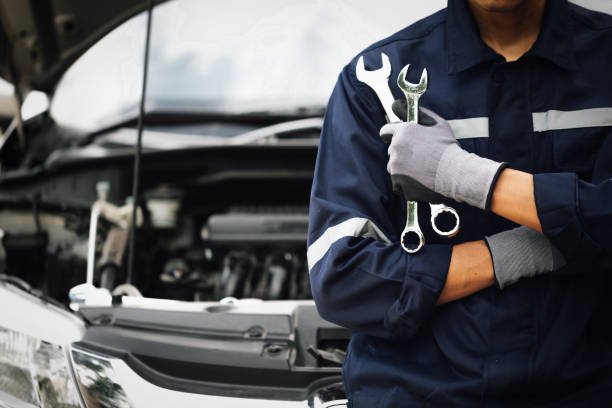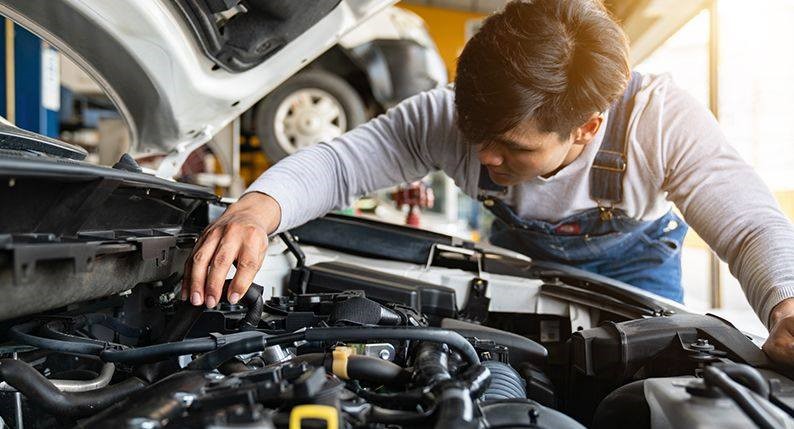Uncover the Many Usual Car Repair Work Issues Drivers Face Today
In the ever-evolving landscape of automobile innovation, chauffeurs today find themselves challenged with a myriad of repair service problems that can disrupt both efficiency and safety. From the refined decrease in engine performance to the scary squeal of brakes, these problems usually develop from commonplace yet crucial parts. The complexity of contemporary automobiles better complicates issues, with electronic systems and transmission mechanisms regularly providing their own collection of difficulties. Comprehending these ubiquitous concerns not only aids in upkeep yet additionally in preemptive diagnostics, which can be crucial in preventing inflated repair work costs. So, what are one of the most common repair obstacles chauffeurs face?
Engine Efficiency Problems

An additional prevalent reason is a defective fuel injector that interrupts the specific delivery of gas right into the engine's burning chamber. This discrepancy can cause the engine to misfire, think twice throughout acceleration, or perhaps delay (Car Service). Clogged air filters likewise add significantly to bad engine efficiency by limiting the airflow required for ideal burning, hence diminishing power output and minimizing fuel performance
Additionally, a damaged oxygen sensor can misread the air-fuel blend, triggering the engine control unit (ECU) to change it incorrectly, further impacting efficiency. Normal maintenance, including timely replacement of these parts and adherence to service timetables, is important in preventing and resolving engine efficiency problems. Professional diagnostics can precisely recognize the source, making certain accurate and reliable fixings.
Brake System Malfunctions

The brake liquid plays a crucial role in maintaining optimal brake efficiency by transferring force from the pedal to the brake components. Polluted or low brake liquid can compromise this feature, resulting in a spongy brake pedal feel. Regular upkeep and evaluation of the brake liquid degree and quality are necessary to protect against such issues.

Transmission Troubles
A vehicle's transmission system is important to its overall performance, as it ensures the effective transfer of power from the engine to the wheels. A defective transmission can result in significant driving issues, including irregular shifting, sliding equipments, and also total vehicle immobilization. Transmission problems are usually a source of disappointment for chauffeurs as a result of their intricacy and the prospective costs connected with their fixing.
Typical transmission problems consist of fluid leaks, which can result from used seals or gaskets, resulting in a decline in hydraulic pressure necessary for proper equipment operation. Reduced or contaminated transmission liquid can create overheating and rubbing, damaging inner components. In addition, electronic control system malfunctions might result in inaccurate equipment engagement or failure to shift altogether.
Disregarding these symptoms can exacerbate the problem, leading to extra extensive damage and expensive repairs. Specialist diagnostic analyses and prompt treatment are necessary to make sure the long life and dependability of a car's transmission system.
Electrical System Failures
While transmission issues usually dominate conversations around car efficiency, the electrical system is equally important to an automobile's functionality. Modern cars navigate here depend greatly on their electrical systems, which control whatever from the ignition process to advanced infomercial and safety and security go features. Electric system failures can manifest in different ways, such as dead batteries, defective generators, blown fuses, and malfunctioning starter motors. These problems can leave vehicle drivers stranded and disrupt the car's operability, making prompt medical diagnosis and fixing critical.
A typical electrical trouble is a drained pipes battery, often triggered by leaving lights on or a failing generator not billing the battery correctly. The alternator, accountable for providing power while the engine runs, can additionally fall short, bring about a power deficit. Furthermore, blown fuses are regular, often showing a brief circuit or an overload in the system. Starter motor problems can prevent the engine from passing on, frequently calling for replacement or fixing.
Identifying electrical failings necessitates a methodical technique, using specialized devices like multimeters to trace faults. Regular upkeep, consisting of checking battery wellness and making sure limited electric links, can stop many problems. Remaining vigilant to alerting indicators can alleviate prospective failings, guaranteeing reputable car performance.
Suspension and Guiding Problems
Suspension and steering systems are vital components that ensure a vehicle's security and handling. These systems operate in tandem to offer a smooth adventure, preserve tire contact with the road, and assist in accurate control of the automobile. In time, they are prone to tear and wear, bring about common issues that can compromise security and performance.
One common problem in the suspension system is damaged shock absorbers or struts, which can trigger too much bouncing, unequal tire wear, and reduced stopping performance. Furthermore, bushings and ball joints might degrade, bring about clunking sounds and bad positioning. Resolving these problems quickly is vital to avoid more damage and guarantee ideal driving problems.
On the steering side, problems commonly arise from used steering these details shelfs, tie rods, or power steering pumps. Symptoms such as trouble steering, vibrations, or a loose guiding wheel can show underlying issues. Normal maintenance checks can aid determine these problems early, making certain and preventing expensive repairs vehicle driver safety.
Final Thought
To conclude, the occurrence of engine performance problems, brake system breakdowns, transmission troubles, electrical system failures, and suspension or steering problems underscores the important demand for normal vehicle maintenance and diagnostics. These typical auto repair service challenges not just affect lorry performance but likewise position significant safety and security threats. Resolving these concerns immediately via regular assessments and prompt repairs can avoid costly problems and ensure the long life and dependability of lorries, ultimately improving road safety and security for all vehicle drivers.
These problems can develop from numerous parts within the engine system, including the ignition, fuel delivery, and air intake systems.Brake system malfunctions are an important worry for car security, usually manifesting with signs and symptoms such as screeching sounds, minimized braking responsiveness, or a spongy brake pedal. These issues can stem from different components within the brake system, including the brake pads, blades, calipers, or hydraulic lines.The brake liquid plays a pivotal duty in keeping ideal brake performance by moving pressure from the pedal to the brake parts. Car Service.In conclusion, the frequency of engine performance issues, brake system breakdowns, transmission problems, electrical system failures, and suspension or steering issues underscores the essential requirement for regular car upkeep and diagnostics